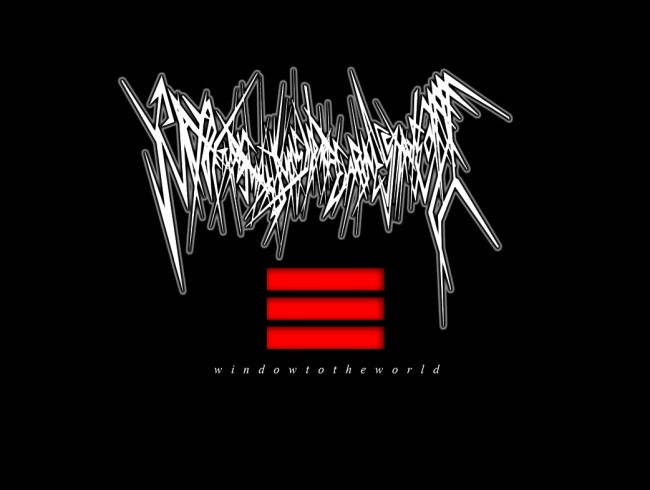(Here is Part 2 of an extensive guest review by Rob Watson that began yesterday [here]. The music can again be found at the end.)
Last time, I got to grips with the opening three tracks of Window to the World. However, these first three songs may be difficult to appreciate if you are not an avid fan of the intimidation, claustrophobia, and general evil that enters into the sound of a lot of modern metal (a band that exemplifies this approach to sound are the Australian death metal outfit Portal). When I listen to the former half of Window to the World, I almost feel as if oxygen is gradually being sucked from the music, so that soon there will be no fresh air to breath and I will be unable to remain in the narcotic wasteland that has been carved within the music. Fortunately, much of the second half is pure melodious oxygen, fulfilling, magnificent, and blossoming with a totally different character than the first.
This metamorphosis of sound begins with ‘The Sanest Sentence’, which is probably the most in-depth song on the album compositionally. It begins very gently, as though it is barely there at all. The development of the music is like what you might see at dawn on a cold morning from within a wood, the light slowly penetrating the foliage. It is rather like a revelation, of sorts: A new corridor within the synaptic networks of the mind is being explored by this gentler, more graceful side to the band’s work.
Unlike many of the motifs and riffs that have gone before in this album, it has a strongly rooted harmonic structure. The chromatic, jarring style of the earlier parts of the album, which resembled classical composers such as Stravinsky or some of Shostakovich’s more aggressive compositions, has been replaced by something more akin to Ravel or Debussy. The immense beauty and simplicity of pieces like ‘Pavane Pour Une Infante Défunte’ or ‘Prélude à l’ Après-midi d’un Faune’ display a similar character to the opening of ‘The Sanest Sentence’, as do certain themes from video game soundtracks, especially those composed by Nobuo Uematsu (the Final Fantasy series is the most famous of his game soundtracks). Continue reading »

